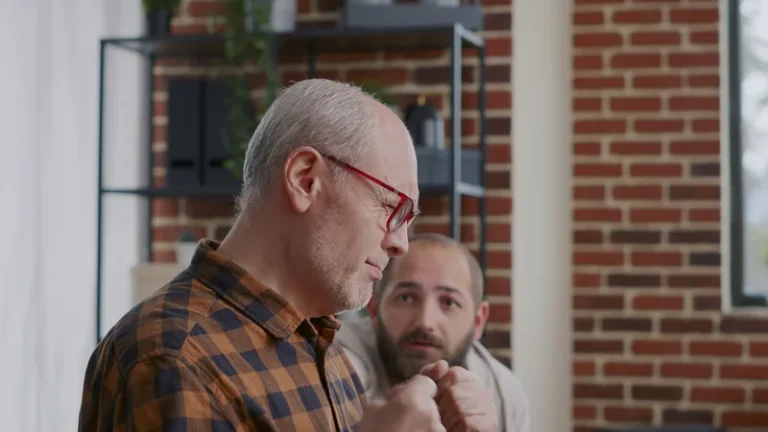
In all, it takes around six months to complete the skills training modules following the standard DBT schedule. The modules are often repeated, however, meaning that many people spend a year or longer in a DBT program. Many people in therapy have very strong emotions that lead to negative thoughts, says Dr. Blaise Aguirre, a psychiatrist who founded the 3 East Dialectic Behavior Therapy Continuum at Harvard-affiliated McLean Hospital.
What Does the Science Say About Dialectical Behavior Therapy (DBT)?
- Opposite action would be getting out of the house, getting sunlight, and watching the sunset.
- DBT can be effective for children, adolescents, adults, and families, Lorandini adds.
- You learn to focus on one thing at a time, without judging yourself or others.
- DBT is a comprehensive and multifaceted therapy designed to help patients cope with extreme emotional suffering and, often, self-injurious behavior.
Adding group dynamics to the learning setting offers clients an opportunity to practice relational skills in a safe and supportive environment, a practice that has been shown to be extremely effective. DBT, like CBT, focuses on helping people address their dysfunctional thinking and behavior through modification of their thought patterns and, through changing their thoughts, their behavior as well. However, CBT is usually confined to a limited period of time and is often applied with one or two specific goals in mind. In addition, there are many skills that relate to accepting and tolerating the current situation, like radical acceptance and willingness vs. willfulness. These skills are intended to help clients function effectively when trying to change something (e.g., making a request) or in trying to resist changes (e.g., refusing a request). The intention is to aid the client in meeting their goals in each situation while avoiding any damage to the relationship or to the client’s self-respect (Psych Central, 2016).
- The primary goal of DBT is to help patients build a mentally healthy life by improving their ability to manage emotions.
- This technique is meant to help you take care of yourself when you are in an emotional crisis, so keep that in mind and try to do this exercise in a way that best suits you.
- Life-threatening or self-injurious behavior takes priority, not surprisingly.
Group skills training
In other words, two seemingly opposite things can actually be true at the same time. In DBT, you identify what this kind of life looks like for you and learn the skills to make it happen. As with all forms of therapy, it is also advisable to find a DBT therapist with whom you feel comfortable. It is advisable to seek a therapist who has not just extensive training but also experience using DBT to treat patients presenting with concerns such as yours.
What is dialectical behavior therapy (DBT)?
It is continually aimed at balancing opposing forces and investigating the truth of powerful negative dialectical behavioral therapy emotions. If you find it difficult to form stable interpersonal relationships, stay in the here and now, or regulate your emotions, DBT skills may help get to a place of greater peace and acceptance. Distress tolerance is another foundational DBT skill that helps you cope with painful situations. The idea is to use helpful coping mechanisms when you’re facing emotional pain. Interpersonal effectiveness skills can help you be clear about these things. These skills combine listening skills, social skills, and assertiveness training to help you learn how to change situations while remaining true to your values.

A brief history of DBT
Likewise, participants are encouraged to share their experiences and provide support. Improving interpersonal effectiveness involves constructively handling interpersonal conflicts. It’s about recognizing the need to stop unnecessary apologies and advocating for yourself while possessing essential social skills. A person also learns to distinguish between primary emotions and the harmful secondary reactions.
TIPP is a skill that can help prevent impulsive or harmful behaviors and is used as a first-line intervention during times of crisis or extreme distress. DBT therapy, as a form of addiction treatment, usually involves individual therapy sessions and skills groups. Individual therapy meetings involve one-on-one contact with a professionally trained therapist to address your therapeutic needs. DBT has been successfully used to treat various mental health issues, including depression, anxiety, substance abuse, eating disorders, drug addiction, and alcohol abuse. In a study published in January 2017 in Behavior Therapy, which included 37 people with bipolar disorder, those who participated in a 12-week DBT group skills training program reported improved well-being and decreased emotion reactivity. It is recommended that people seeking treatment find a licensed mental health professional who has completed a specialized DBT training or certificate program.
- If you or a loved one might benefit from DBT, it’s important to talk with a healthcare provider or mental health professional who is trained in the approach.
- Dialectical behavioral therapy is a psychotherapy approach that aims to help you cope with everyday and extraordinary challenges by developing specific skills.
- It can help people who have difficulty with emotional regulation or are exhibiting self-destructive behaviors (such as eating disorders and substance use disorders).
In addition to writing for Everyday Health, her work has been featured in WebMD, SELF, Healthline, A&E, Psych Central, Verywell Health, and more. Her goal is to compose helpful articles that readers can easily understand and use to improve their well-being. She is passionate about healthy living and delivering important medical information through her writing. Lorandini adds that it’s important to check with your insurance provider first to see if they cover DBT. She recommends that if you do have to pay out of pocket, ask potential therapists if they offer a sliding scale fee, a payment structure with rates based on your ability to pay.
What’s the theory behind DBT?
During a DBT pre-assessment, therapists explain how DBT works and ask each patient questions to determine whether DBT might be an appropriate and effective treatment for them. Lorandini adds that some DBT programs offer virtual therapy, which may be helpful if a person lives in a remote area or has certain responsibilities that make in-person therapy challenging. Although most research has focused on evaluating the effectiveness of DBT for BPD, studies have shown the therapy may be effective for other conditions, too. The outlook and prognosis can vary depending on the individual and the severity of their condition. Patients who fully participate in all components of DBT and apply the skills learned in their daily lives often see the most benefit.

But for teens who are suicidal or harming themselves, intensive DBT can help keep them out of the hospital and potentially save their lives. “If your child had cancer, you wouldn’t think twice about taking them in for chemotherapy infusions twice a week,” says Dr. Aguirre. “We’re starting to recognize that the majority of people can improve just doing the skills groups and don’t need the full DBT,” says Dr. Aguirre.

Being overwhelmed with emotion can cause a lot of problem behaviors, including outbursts, aggression, self-harm, substance abuse, and suicidal thoughts. DBT addiction treatment, as substance abuse treatment, helps people become aware of their thoughts, emotions, and behaviors related to their addiction. It focuses on identifying and changing destructive behavior patterns, regulating emotions, and managing interpersonal relationships. Emotions are chemical and physical signals in the body that communicate how you feel and what is happening. Extreme reactive emotions are quite effective when a person is facing imminent threat or danger, but not as helpful in relationships or at work. DBT was developed in large part to help people experiencing extreme emotions gain the necessary skills to manage them and improve their lives.


